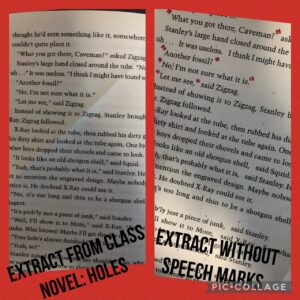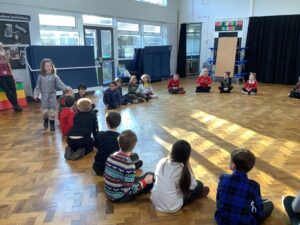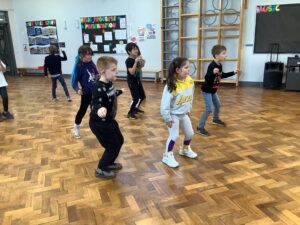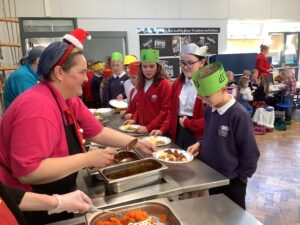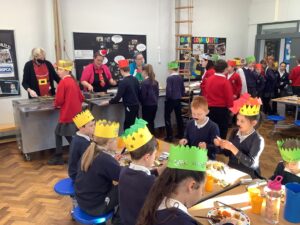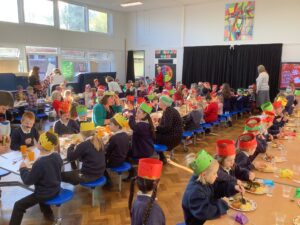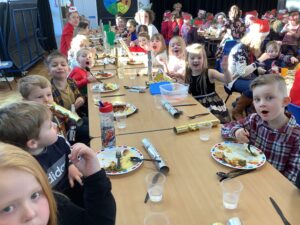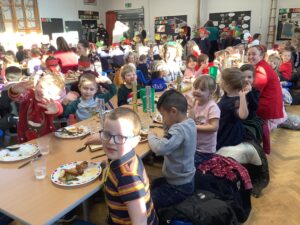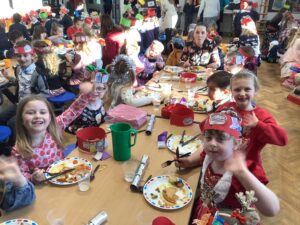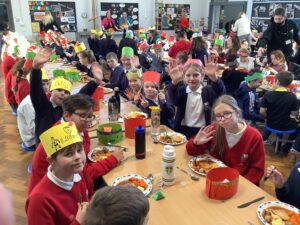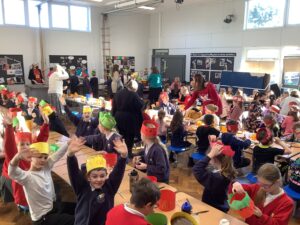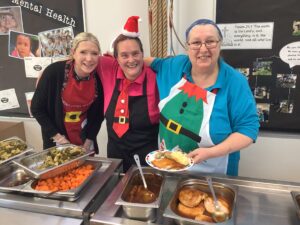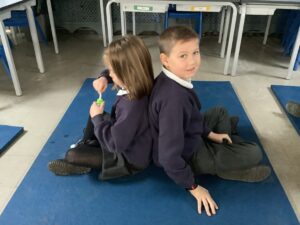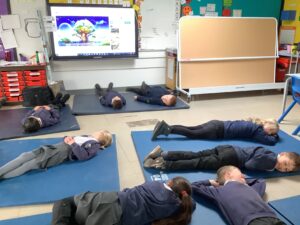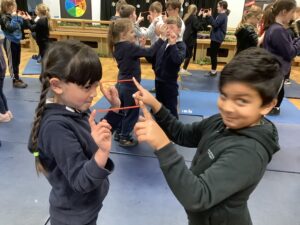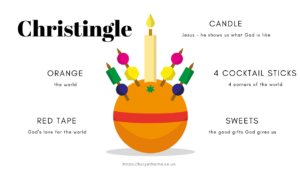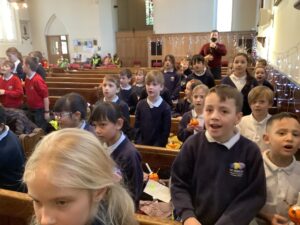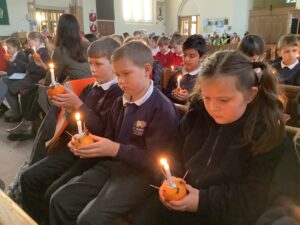This week’s message is from Mr Wilks, who leads on Science and foundation subjects. Before that, a quick heads up…
Next Friday is Identity Day. This day links to our learning on identity, part of our Living and Learning provision. We invite children to come to school wearing something that demonstrates their identity. This could be linked to a particular club or sport, it could be traditional clothes, or even just a badge to show belonging. (We’re keeping windows open for ventilation, so plenty of layers, too!)
Now, let’s find out more about the current topic your child is learning from Mr Wilks…
What is this half-term’s topic?
This half-term, we’re historians and we’ll develop our understanding of Britain’s past and the wider world.
I love history. It’s one of my favourite subjects to teach. There are so many amazing stories and characters from the past and although the people and events we study can be separated from our own lives by thousands of years, there are lots of relevant connections we can make with the world today. Children will use enquiry skills to answer questions about the past that require opinions. They’ll be ‘time detectives’, using sources of evidence to help them answer these questions. They’ll learn that certain things that they learn about may or may not be true and that history can be interpreted in different ways.
Each phase has age-related specific knowledge, skills and vocabulary that they’ll learn, use and apply across the topic. See pages 27, 28 and 29.
Years 1 and 2
Your child will learn about how shopping has changed over time. They’ll develop chronological understanding by sequencing events in their own lives before learning about how shopping was different during their parents’ and grandparents’ childhoods. They’ll look at similar products from different times and try to sequence them chronologically using logical reasoning. Your child will use photographs and other sources of evidence to identify changes and similarities on the high street over time. They’ll learn about the history of a local shop, Marks and Spencer, and how it has changed over time.
The key historical concept which we’ll explore in this topic is trade. Trade is the exchange of goods and services, initially for other goods and services, and then for money.
Years 3 and 4
Your child will learn about the Roman Empire and its invasion of Britain. They’ll examine how life changed for the people living in Britain at the time of the invasion. They’ll learn about the Celtic warrior, Boudicca, and how she resisted the Romans. Children will also consider what we know about Boudicca, how we know it and whether we can trust it. Your child will learn about the amazing inventions and advances that the Romans brought to Britain. Finally, they’ll find out why the Romans left Britain and what happened after they left.
There are two key historical concepts which we’ll explore in this topic: empire and invasion. An empire is a large group of countries or states ruled by an emperor or empress. An invasion is when a country or region is invaded by an armed force.
Years 5 and 6
Your child will learn about Viking Britain and an Early Islamic Civilisation centred around the city of Baghdad around 800AD.
During this period of time, Baghdad was the largest city in the world and was the centre of the world’s trade routes. Trade between Vikings and Baghdad happened and provides a real link between these two societies.
Through studying the Vikings, children will again learn about how people invaded and settled in Britain. Invasion is also relevant as it brought an end to the Islamic Golden Age.
The Islamic Golden Age was a period of great innovation. Learning and knowledge was key to their success. They built the world’s first hospitals, universities and observatories, as well as studied writing from scholars around the world. The contrast with Viking Britain during the Dark Ages is stark!
There are three key historical concepts which we’ll explore in this topic: trade, invasion and innovation. Trade is the exchange of goods and services, initially for other goods and services, and then for money. An innovation is an improvement or replacement for something. An invasion is when a country or region is invaded by an armed force.
How can you help?
Talk to your child about what they’ve been learning in class. The class news page of the school website is a good place to go to find out more about what the children are doing.
Find some books from the library which match what the children are learning. This will be quite easy for children in Key Stage 2 as there will be plenty of books about Roman Britain and Viking Britain. You should also be able to find some about the Islamic Golden Age. For children in KS1, you may find it more difficult to find books about shopping over time. However, any book that looks at how an aspect of life has changed over time will be good. For example, you may find KS1 history books about toys and games, houses, transport, holidays. These will all help your child to sequence chronologically and explore similarities and differences.
Watch television shows about history. Horrible Histories is great (regardless of your age!).
If it’s a rainy weekend and you’re looking for something to do, why not spend a morning or afternoon in a museum? Abbey House Museum in Kirkstall is a great museum, perfectly suited to the Year 1,2 topic as it has a recreated Victorian Street with lots of different shops and even a pub! It also has a great exhibition of toys over time. A visit to Leeds City Museum would be great for all children but especially for Y3,4 children as it has some exhibits linked to the Romans in Leeds. It’s free to enter. Though more expensive and further afield, the Jorvik Viking Centre and Jorvik Dig are both excellent days out and especially relevant for the Year 5 and 6 topic.
